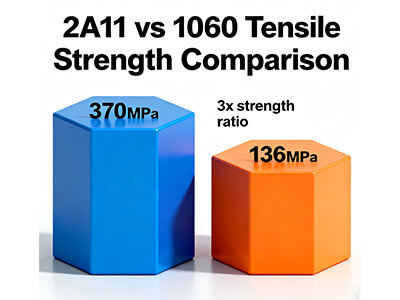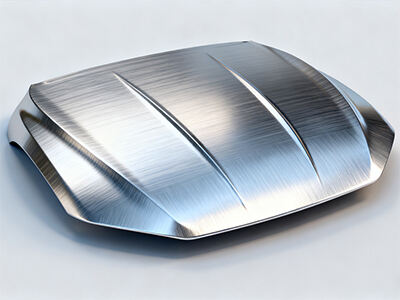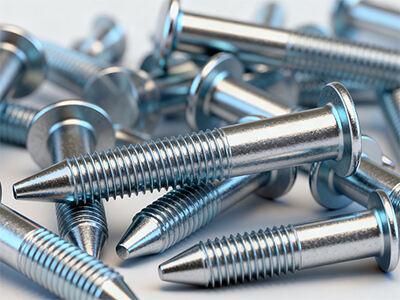2A11 aluminum plate, a classic Al-Cu-Mg duralumin alloy, has become indispensable in industrial sectors relying on load-bearing components—all thanks to its exceptional mechanical strength that sets it apart from other aluminum materials.

In its quenched and aged state, 2A11 boasts a tensile strength of over 370 MPa, with a 0.2% yield strength reaching no less than 215 MPa. To put this into perspective: compared to 1060 commercial pure aluminum (with a tensile strength range of 110–136 MPa), 2A11 delivers more than triple the strength. This means it can easily handle heavier loads and resist impact forces that would compromise weaker alloys.
Beyond raw strength, 2A11 also benefits from heat treatment adaptability. Through quenching and subsequent aging, its internal microstructure stabilizes, striking a rare balance between high strength and workability. Even in annealed or freshly quenched conditions, it can be formed via stamping, stretching, or bending—making it flexible for complex manufacturing processes.

Its strength-to-versatility ratio makes 2A11 a top pick for:
Automotive engineering: Hoods, truck structural parts, and components exposed to vibration loads.
Heavy machinery: Ship decks, large-scale forgings, and equipment frames.
Precision manufacturing: Mechanical rivets, mold bases, and load-bearing fixtures.

When corrosion resistance is required (such as in outdoor or marine applications), 2A11 can undergo anodizing. This process forms a tight protective oxide layer that shields against corrosion without sacrificing its high strength, ensuring longevity in harsh environments.
Available in thicknesses from 1.0mm to 50.0mm, 2A11 aluminum plate matches the exact dimensional needs of load-bearing component production—solidifying its role as a reliable workhorse in industry.
 Hot News
Hot News2026-01-29
2026-01-27
2026-01-22
2026-01-20
2026-01-15
2026-01-13